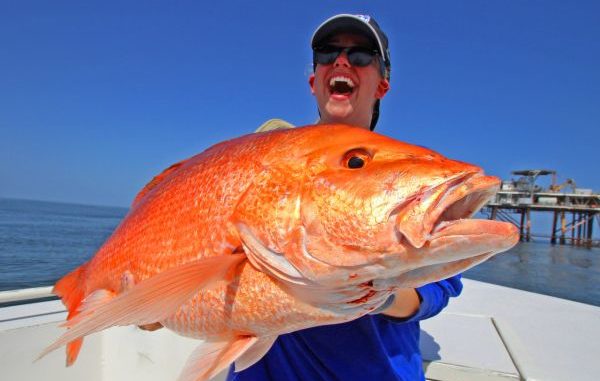
Official announcement of 14-day supplemental fishing season opening Oct. 1 expected within days
Despite higher-than-anticipated catch estimates from the June season, it appears there will, in fact, be a 14-day federal recreational red snapper season beginning Oct. 1, officials told Louisiana Sportsman late Tuesday afternoon.
Roy Crabtree, the National Marine Fisheries Service regional administrator in St. Petersburg, Fla., confirmed in a phone interview that the rule allowing a 14-day recreational season was still being finalized, but he expected it to be confirmed as early as Wednesday.
“It’s not done yet, but I think it will be very soon and the announcement may come as early as (Wednesday),” Crabtree said. “While it is not final now, we have every expectation that this is what’s going to happen. And we’re just tying to give as much advance notice to folks as we can so they can plan.”
At issue was the federal Marine Recreational Information Program, which estimates recreational red snapper landings in the Gulf of Mexico. Crabtree said a new survey design implemented earlier this year, which was designed to reduce bias, yielded catch estimates for the 28-day June season that were much higher than in previous years.
In July, before those new catch estimates were tabulated, the Gulf of Mexico Fishery Management Council voted to increase the total red snapper quota from 8.46 million pounds to 11 million pounds, of which 5.39 million pounds would be the recreational quota and the remaining 5.61 million pounds the commercial quota.
But news reports in August indicated the June recreational catch estimate had exceeded 6 million pounds, putting the proposed fall supplemental season in limbo.
Ultimately, Crabtree said the decision was made to stick with the original catch projections for the year rather than entirely abandon a fall recreational season.
“We still don’t know at this point to what degree the preliminary catch estimates for June were influenced by the new survey design,” Crabtree said. “So we don’t know yet at this point whether those new estimates are directly comparable to the catch quotas that we have in place right now, which are based on the historical catch estimates using the older methodology.
“Because we had to make a decision right now on the October fishery, we decided to just stay with the original catch projections that we were using for this year and not change our management direction based on these June catch estimates until we had more time to fully evaluate those and to incorporate them into the stock assessment, the rest of our science and the overall management program.”
Gulf of Mexico Fishery Management Council member Bob Shipp said last week he thought is was possible that environmental groups could sue to stop a potential season if one was scheduled because of the high catch estimates that were tabulated from June.
Crabtree said Tuesday suits could be filed no matter what decision was reached regarding the fate of the fall supplemental season.
“Any action we take could be challenged in court, so we’ll see what happens, and that will be up to the courts to determine,” he said. “We’re just trying to make the best decisions we can with the information that we have on hand.”
Randy Pausina, head of fisheries for the Louisiana Department of Wildlife and Fisheries, said the move to have a 14-day season in spite of the data collected validates his department’s decision announced last week to withdraw from the MRIP program effective Jan. 1.
“It’s pretty amazing, huh?” Pausina said. “Wave 3 of MRIP data showed that the whole, entire annual catch limit had been harvested, which would have meant no supplemental season. They rejected it based on methodology problems, and miraculously rejected the MRIP data.
“So the same program that we renounced, they don’t even have confidence in. They still don’t have confidence in MRIP. They just don’t. So how the hell are we supposed to have any confidence in it?”
Crabtree said additional pounds also would be provided to the commercial quota for a commercial harvest.


